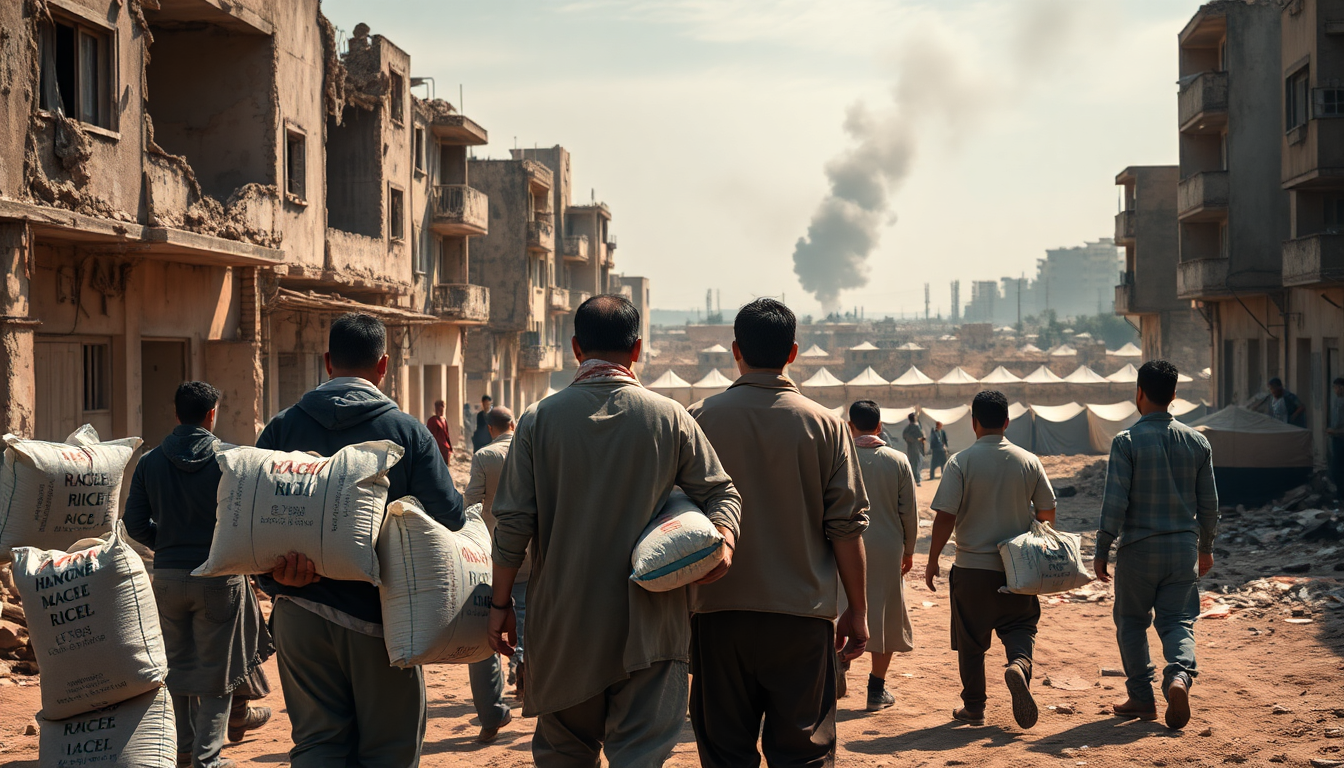Table of Contents
The humanitarian crisis in Gaza has reached a critical point, leaving countless civilians caught in the relentless crossfire of ongoing conflict and deprivation. Imagine trying to access food and basic necessities, only to find yourself in the line of fire. Tragically, recent escalations in violence have resulted in a heartbreaking number of casualties among those desperately seeking survival. The urgency of this situation is made painfully clear through the testimonies of survivors and health officials, who describe a population teetering on the edge of starvation.
The scale of the crisis: numbers and narratives
Recent reports paint a shocking picture: Israeli forces have claimed the lives of at least 115 Palestinians in Gaza. This staggering figure illustrates just how severe the conflict has become. Among those lost were individuals simply trying to secure aid, with 79 people tragically shot while waiting at the Zikim crossing, hoping to receive flour from a United Nations aid convoy. This heartbreaking event underscores the desperate lengths to which civilians are forced to go in their quest for basic sustenance, often with fatal consequences.
The World Food Programme has raised alarms about skyrocketing malnutrition levels, revealing that nearly one-third of the population is going days without food. These dire conditions have been worsened by a relentless siege that restricts humanitarian access and aid deliveries. In a single day, at least 19 individuals reportedly died from starvation, and health officials warn that hundreds more are at severe risk. Can you imagine living in a place where every meal is uncertain?
Survivors like Rizeq Betaar and Osama Marouf share harrowing stories of trying to save their loved ones amidst the chaos. Their experiences reflect a broader narrative of despair and resilience, as families navigate a landscape where survival is increasingly precarious. It’s a stark reminder of the human spirit’s capacity to endure even in the darkest times.
The international response and the call for aid
As the world turns its attention to Gaza, the international response has been criticized for falling short of the urgent needs on the ground. The UN’s World Food Programme emphasizes the critical need for a substantial increase in food aid to stabilize the situation. Despite the availability of supplies at the border, access remains obstructed, exacerbating the crisis. Why is it that aid can be available yet remains out of reach for those who need it most?
With reports surfacing about the weaponization of aid in the region, calls for action have intensified. Humanitarian agencies are condemning the ongoing violence against civilians seeking assistance, urging for the protection of those in need and for immediate facilitation of humanitarian access. The situation has drawn widespread international scrutiny, highlighting the moral imperative to alleviate the suffering of innocent civilians. Isn’t it time we stand up for those who can’t stand up for themselves?
The implications for the region’s stability are profound as the crisis unfolds. With malnutrition rates soaring and health crises looming, the potential for civil unrest and further violence increases. It’s clear that a coordinated international response is critical—not only to address the immediate humanitarian needs but also to help restore some semblance of normalcy for the beleaguered population.
Looking ahead: the future of Gaza
As we look to the future, the trajectory of the humanitarian crisis in Gaza remains uncertain. Health officials warn that without a significant influx of aid, the mortality rate due to malnutrition and preventable diseases could rise dramatically. This is not just a crisis of numbers; it’s a crisis of lives.
Efforts to rebuild trust within communities and restore access to essential supplies are crucial for any meaningful recovery. Addressing the root causes of the conflict and implementing sustainable solutions will be vital for long-term healing. The international community must respond not only to immediate needs but also engage in dialogue that paves the way for lasting peace and stability in the region.
In conclusion, the humanitarian crisis in Gaza serves as a stark reminder of the devastating impact of conflict on innocent lives. As the situation continues to evolve, the world watches closely, hoping for a resolution that respects the dignity and rights of all individuals affected by this heartbreaking crisis. What will it take for us to truly make a difference?


